第6章 THE STATE AS A WORK OF ART(6)
The foundation of the system was and remained illegitimate, and nothing could remove the curse which rested upon it.The imperial approval or investiture made no change in the matter, since the people attached little weight to the fact that the despot had bought a piece of parchment somewhere in foreign countries, or from some stranger passing through his territory.If the Emperor had been good for anything, so ran the logic of uncritical common sense, he would never have let the tyrant rise at all.Since the Roman expedition of Charles IV, the emperors had done nothing more in Italy than sanction a tyranny which had arisen without their help; they could give it no other practical authority than what might flow from an imperial charter.The whole conduct of Charles in Italy was a scandalous political comedy.Matteo Villani relates how the Visconti escorted him round their territory, and at last out of it; how he went about like a hawker selling his wares (privileges, etc.) for money; what a mean appearance he made in Rome, and how at the end, without even drawing the sword, he returned with replenished coffers across the Alps.Sigismund came, on the first occasion at least (1414), with the good intention of persuading John XXIII to take part in his council; it was on that journey, when Pope and Emperor were gazing from the lofty tower of Cremona on the panorama of Lombardy, that their host, the tyrant Gabrino Fondolo, was seized with the desire to throw them both over.On his second visit Sigismund came as a mere adventurer; for more than half a year he remained shut up in Siena, like a debtor in gaol, and only with difficulty, and at a later period, succeeded in being crowned in Rome.And what can be thought of Frederick III? His journeys to Italy have the air of holiday-trips or pleasure-tours made at the expense of those who wanted him to confirm their prerogatives, or whose vanity is flattered to entertain an emperor.The latter was the case with Alfonso of Naples, who paid 150,000 florins for the honour of an imperial visit.At Ferrara, on his second return from Rome (1469), Frederick spent a whole day without leaving his chamber, distributing no less than eighty titles; he created knights, counts, doctors.notaries--counts, indeed, of different degrees, as, for instance, counts palatine, counts with the right to create doctors up to the number of five, counts with the rights to legitimatize bastards, to appoint notaries, and so forth.The Chancellor, however, expected in return for the patents in question a gratuity which was thought excessive at Ferrara.The opinion of Borso, himself created Duke of Modena and Reggio in return for an annual payment of 4,000 gold florins, when his imperial patron was distributing titles and diplomas to all the little court, is not mentioned.The humanists, then the chief spokesmen of the age, were divided in opinion according to their personal interests, while the Emperor was greeted by some of them with the conventional acclamations of the poets of imperial Rome.Poggio confessed that he no longer knew what the coronation meant: in the old times only the victorious Imperator was crowned, and then he was crowned with laurel.
With Maximilian I begins not only the general intervention of foreign nations, but a new imperial policy with regard to Italy.The first step -- the investiture of Lodovico il Moro with the duchy of Milan and the exclusion of his unhappy nephew -- was not of a kind to bear good fruits.According to the modern theory of intervention when two parties are tearing a country to pieces, a third may step in and take its share, and on this principle the empire acted.But right and justice could be involved no longer.When Louis XI was expected in Genoa (1507), and the imperial eagle was removed from the hall of the ducal palace and replaced by painted lilies, the historian Senarega asked what, after all, was the meaning of the eagle which so many revolutions had spared, and what claims the empire had upon Genoa.No one knew more about the matter than the old phrase that Genoa was a _camera imperii_.
In fact, nobody in Italy could give a clear answer to any such questions.At length when Charles V held Spain and the empire together, he was able by means of Spanish forces to make good imperial claims:
but it is notorious that what he thereby gained turned to the profit, not of the empire, but of the Spanish monarchy.
* * *